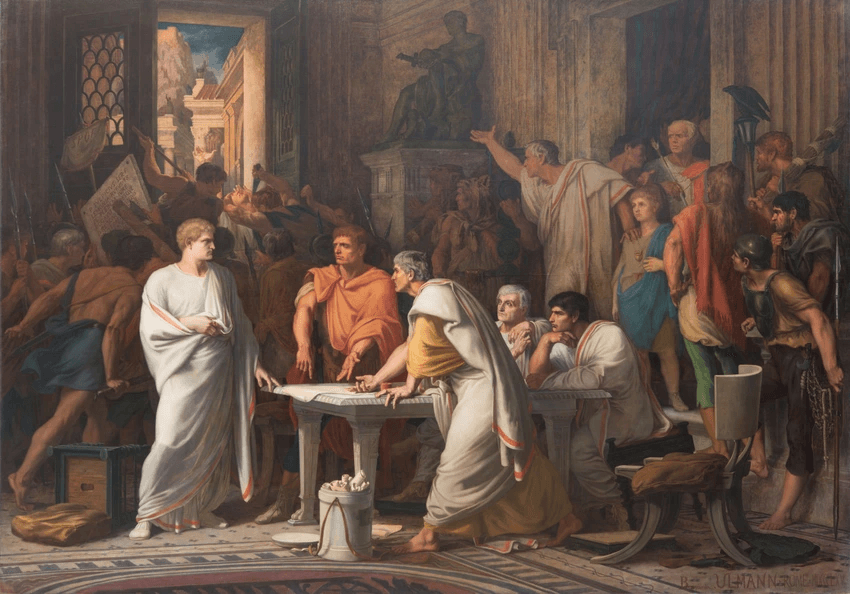We all know the story of Caesar and the transformation of the Roman Republic into the Roman Empire. Few are aware of Caesar’s predecessor, Lucius Cornelius Sulla. He set the precedent for a single politician seizing immense power, shaking Rome to its foundations, and overriding the Republican process. To this day, controversy still churns around this important figure in Roman history: Was he a heartless tyrant or Rome’s savior? What can we learn from his story about how and when republics stall and dictators emerge?
A Lucky Life
Sulla was born in 138 B.C. to an obscure noble family. According to the ancient historian Plutarch, he lived in poverty in his youth. He displayed a tendency toward luxury and a taste for carousing and partying with actors and jesters. (He always loved the theater.)A strange birthmark on his face notwithstanding, Sulla always considered himself lucky—so much so that he added “Felix” to his name, a word meaning “fortunate one.” Fortune first smiled upon him when he was chosen as quaestor—a government position akin to a financial magistrate—under the command of the highly respected general and politician, Gaius Marius. This launched Sulla’s remarkable political career, in which he rose from obscurity through the “cursus honorum,” the standard sequence of public offices for ambitious politicians, to the very summit of Roman power.






